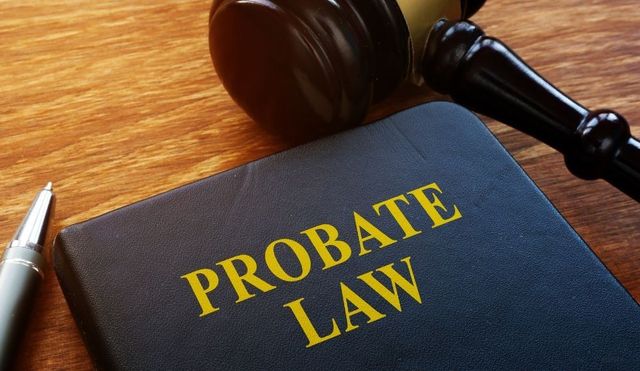
When a loved one passes away, emotions can run high, and disputes over the estate often arise. Inheritance disagreements can strain family relationships, drain financial resources, and create long-lasting divisions if not handled carefully. Beneficiaries, who are already dealing with grief, often find themselves facing complex legal battles they are not equipped to manage alone. This is where probate litigation attorneys step in. Their role is to protect the rights of beneficiaries, ensure that wills and trusts are honored according to law, and fight against fraud, undue influence, or mishandled estate administration. Having experienced legal advocates on their side allows beneficiaries to pursue fair outcomes while reducing stress and avoiding costly mistakes.
How Probate Litigation Attorneys Advocate for Beneficiaries
Beneficiaries often face significant challenges during estate disputes, especially when executors, trustees, or other heirs act improperly. Los Angeles probate litigation attorneys specialize in navigating these conflicts, representing beneficiaries’ interests at every stage of the process. They step in when wills are contested, when trust terms are disputed, or when assets seem to have been mismanaged or hidden. In addition to courtroom advocacy, probate litigation attorneys advise beneficiaries on negotiation strategies, settlement opportunities, and the potential risks and rewards of pursuing claims. Their knowledge of California’s probate laws and court procedures ensures that beneficiaries have a strong voice, clear guidance, and skilled representation to secure their rightful inheritance.
Protecting Against Executor or Trustee Misconduct
During estate disputes, it is not uncommon for executors or trustees to overstep their authority or mismanage assets. Sometimes, misconduct involves delaying distributions, mishandling investments, favoring certain beneficiaries, or failing to disclose important information. These actions can severely impact the value of the estate and the rights of beneficiaries. Probate litigation attorneys play a crucial role in monitoring fiduciary behavior and taking swift action when misconduct arises. They can file petitions to compel proper accountings, seek removal of executors or trustees, and pursue financial recovery for any harm caused. Holding fiduciaries accountable allows attorneys to protect the integrity of the estate and guarantee that beneficiaries receive their legal entitlements.
Common Types of Estate Disputes Beneficiaries Face
Estate disputes can arise in many different ways, each bringing its own set of legal complexities. Beneficiaries must be prepared to navigate these challenges strategically to protect their rights and the overall value of the estate. Below are some of the most common types of estate disputes beneficiaries may encounter:
- Challenges to the Validity of a Will or Trust- Allegations of undue influence, fraud, or the decedent’s lack of mental capacity often form the basis for contesting the validity of estate documents.
- Executor Misconduct- Disputes may arise when executors fail to properly distribute assets, mismanage estate property, or engage in self-dealing for personal gain.
- Conflicts Over Ambiguous Will Language- Poorly drafted or unclear provisions can lead to differing interpretations, resulting in disputes among beneficiaries and potential litigation.
- Missing or Misappropriated Assets- Beneficiaries may challenge estate administrators if assets appear to be missing, improperly valued, or wrongfully distributed.
- Creditor Claims Against the Estate- Disagreements can emerge over the validity or priority of creditor claims, which can diminish the amount available for beneficiary distributions.
- Disputes Among Co-Beneficiaries- Tensions between beneficiaries, especially in blended families or high-value estates, can trigger conflicts over entitlement, fairness, and asset division.
Each of these disputes requires a careful and strategic legal approach to protect the beneficiary’s rights while striving to preserve the estate’s assets and minimize prolonged litigation.
Preventing Asset Loss Through Early Legal Intervention
One of the most effective ways probate litigation attorneys protect beneficiaries is through early intervention. Addressing misconduct or procedural errors quickly can prevent further harm to the estate, preserve assets, and stop wrongful actions before they escalate. Attorneys can petition courts to freeze estate accounts, remove problematic executors or trustees, compel proper accountings, and recover misappropriated property. Acting decisively helps beneficiaries reduce the risk of asset dissipation and enhances their chances of receiving a complete and equitable inheritance..
How Probate Litigation Differs from Regular Estate Administration
While estate administration focuses on carrying out the deceased’s wishes without dispute, probate litigation arises when conflicts disrupt this process. Litigation involves formal court proceedings, legal motions, evidence presentation, and, often, trials. It is an adversarial process designed to resolve disagreements through judicial intervention. Beneficiaries embroiled in probate litigation need specialized legal counsel familiar with courtroom procedures, evidentiary rules, and persuasive advocacy. Unlike routine probate work, litigation requires attorneys to anticipate opposition tactics, gather robust evidence, and craft compelling arguments to achieve favorable rulings.
The Emotional Value of Strong Legal Representation
Estate disputes are deeply personal and can reopen old family wounds. Having strong, professional legal representation not only protects beneficiaries’ financial interests but also provides emotional stability during an incredibly stressful time. Knowing that their rights are being defended allows beneficiaries to focus on healing and moving forward. An experienced attorney also acts as a buffer, absorbing much of the conflict and shielding beneficiaries from direct confrontations with family members or opposing parties. This emotional support, combined with effective legal strategy, often makes the difference between a prolonged, bitter conflict and a resolution that respects the wishes of the deceased.
Resolving Disputes Through Mediation and Settlement
Not every probate dispute needs to end in a prolonged court battle. In many cases, mediation or negotiated settlements offer faster, less stressful resolutions for beneficiaries. Mediation involves a neutral third party helping the involved sides find common ground and craft a mutually acceptable agreement. Probate litigation attorneys often guide beneficiaries through these alternative dispute resolution methods when appropriate. Settling can preserve more estate assets by reducing legal costs and avoiding the uncertainty of trial outcomes. A skilled attorney ensures that any settlement still protects the beneficiary’s financial interests and enforces accountability where needed.
Choosing the Right Probate Litigation Attorney
Selecting the right probate litigation attorney is critical to a successful outcome. Beneficiaries should look for attorneys with substantial courtroom experience, deep knowledge of California probate law, and a proven track record of handling complex estate disputes. It is also important to choose a legal advocate who listens carefully, communicates clearly, and genuinely understands the emotional and financial stakes involved. A strong attorney-client relationship built on trust and collaboration greatly improves the litigation experience and maximizes the chances of securing a fair inheritance.
